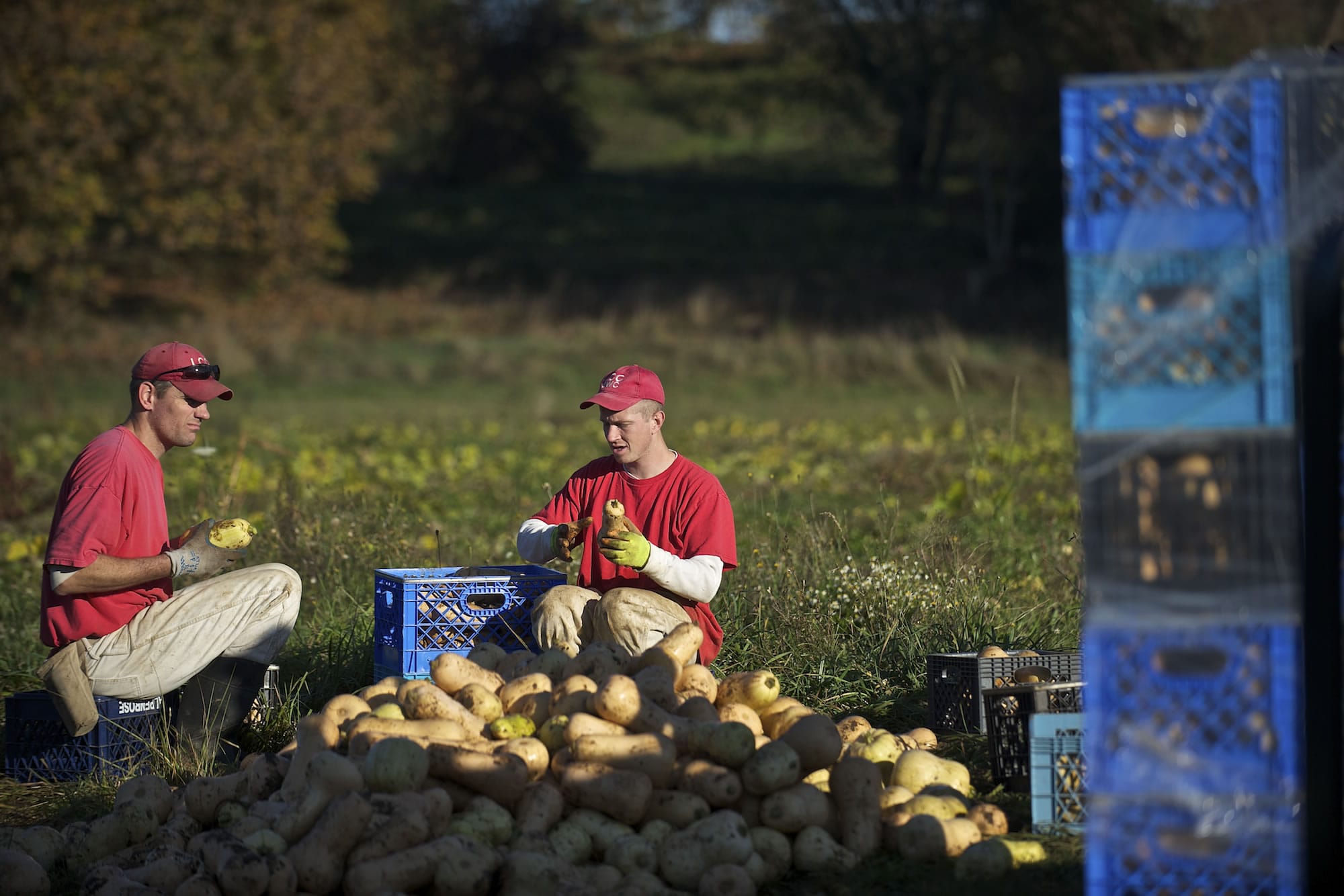Five months ago, Jimmy Nickell worked alongside other inmates from Larch Corrections Center to plant more than 40 rows of seeds in a 2-acre plot of land in the Andresen-St. Johns neighborhood.
He and other prisoners then returned a handful of times over the summer to weed and spray the plants to keep away mildew.
On Monday, Nickell worked to harvest the fruit of his labor: tens of thousands of pounds of butternut squash.
“I think it’s pretty gratifying to see something at the beginning and to finish it all the way through,” he said.
Snipped from their vines and then packed into crates, the squash was hauled off to the Clark County Food Bank. Although prison inmates have worked with the food bank in the past, the recent harvest was the product of a collaboration where the inmates did all the work — from seed to harvest.
“I think they’re amazed at what their efforts led to,” said Jerry Hofer, co-owner of J’s Custom Landscaping. “Their effort was 90 percent of the work.”
Hofer and Blair Wolfley, who manages Heritage Farm on 78th Street, worked together to lead the inmates and teach them how to grow the squash. That included laying about a mile and a half of irrigation drip lines.
“These guys are good workers,” Hofer said. “The commitment and enthusiasm is high.”
For the Department of Corrections, the work fell to its work crew program, which charges government agencies and nonprofits $1.31 per hour per inmate for their labor. For their work, inmates earn 50 cents an hour.
“It’s not about the money, its about helping the people who need it,” said inmate Tim Johnson, 55, of Camas. At the same time, he said, “it gives us a job and gets us away from camp.”
Wolfley calls the project a great example of the community working together. The 2-acre parcel sits near Clark County Food Bank, 6502 N.E. 47th Ave., and is waiting to be developed. The owner, who did not want to be named, donated the use of the land for the project and paid for the plants’ water.
“You have land that’s just sitting there idle … then you have individuals who want to pay back the community and learn new skills,” Wolfley said. The best part, he said, is that the food is “going back into the community, to the people who don’t have the wherewithal to put food on the table every day.”
Over the next few months, the produce will be distributed to 29 agencies that will include the butternut squash in their emergency food boxes, said Kristen Herron, program coordinator for the food bank.
Herron said squash makes a perfect addition because it is a local winter produce that can last for several months.
“It is very, very shelf stable,” Herron said. Also, she said, “It’s a very nutrient-dense food with lot of vitamins and minerals.”
The plantation is expected to bring more than 40,000 pounds of squash, which Herron said is a huge help.
“We don’t see big quantities of food donations like this, especially fresh food,” Herron said. The food bank invested money in the labor and materials for the squash, but with the land and water donated, she said, the cost was minimal.
Herron said as other assistance programs become less available, the food bank’s food supply becomes that much more important.
“As the need continues to go up, we’re going to be serving more people,” she said. “It’s great to have that much more food to be serving those people with.”




